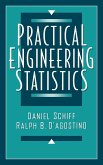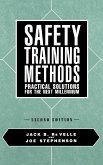With the growing complexity of engineered systems, reliability has increased in importance throughout the twentieth century. Initially developed to meet practical needs, reliability theory has become an applied mathematical discipline that permits a priori evaluations of various reliability indices at the design stages. These evaluations help engineers choose an optimal system structure, improve methods of maintenance, and estimate the reliability on the basis of special testing. Probabilistic Reliability Engineering focuses on the creation of mathematical models for solving problems of system design. Broad and authoritative in its content, Probabilistic Reliability Engineering covers all mathematical models associated with probabilistic methods of reliability analysis, including--unique to this book--maintenance and cost analysis, as well as many new results of probabilistic testing. To provide readers with all necessary background material, this text incorporates a thorough review of the fundamentals of probability theory and the theory of stochastic processes. It offers clear and detailed treatment of reliability indices, the structure function, load-strength reliability models, distributions with monotone intensity functions, repairable systems, the Markov models, analysis of performance effectiveness, two-pole networks, optimal redundancy, optimal technical diagnosis, and heuristic methods in reliability. Throughout the text, an abundance of real world examples and case studies illustrate and illuminate the theoretical points under consideration. For engineers in design, operations research, and maintenance, as well as cost analysts and R&D managers, Probabilistic Reliability Engineering offers the most lucid, comprehensive treatment of the subject available anywhere. About the editor JAMES A. FALK is Professor and Chairman of the Department of Operations Research at George Washington University. In addition to his numerous publications, Dr. Falk has lectured internationally as a Fulbright Lecturer. Of related interest... The reliability-testing "bible" for three generations of Eastern European scientists, adapted for Western scientists and engineers... HANDBOOK OF RELIABILITY ENGINEERING Originally published in the USSR, Handbook of Reliability Engineering set the standard for the reliability testing of technical systems for nearly three generations of applied scientists and engineers. Authored by a group of prominent Soviet specialists in reliability, it provides professionals and students with a comprehensive reference covering mathematical formulas and techniques for incorporating reliability into engineering designs and testing procedures. Divided into twenty-four self-contained chapters, the Handbook details reliability fundamentals, examines common reliability problems and solutions, provides a collection of computation formulas, and illustrates practical applications. The Handbook's Russian editor and internationally recognized expert Igor A. Ushakov has joined with American engineering professionals to bring this indispensable resource to English-speaking engineers and scientists. 1994 (0-471-57173-3) 663 pp.
Hinweis: Dieser Artikel kann nur an eine deutsche Lieferadresse ausgeliefert werden.
Hinweis: Dieser Artikel kann nur an eine deutsche Lieferadresse ausgeliefert werden.








